Translations 677
Pix from Gala vs. Homophobia & Transphobia

Pictures from 11th Gala Againist Homophobia & Transphobia

By Darío Gabriel Sánchez García
Journalist and photojournalist. Professor of Photography and Audiovisual Production at the Faculty of Communication of the University of Havana.
May 18, 2018
Translated and edited by Walter Lippmann for CubaNews.
This Friday, the stage of the great Cuban events, the Karl Marx Theatre, was filled with people at the 11th Cuban gala against homophobia and transphobia, under the slogan “For schools without homophobia and transphobia”.The gala featured nationally recognized international artists such as Alain Daniel, Diván, Haila, Laritza Bacallao, Migue-DECUBA, Proyecto Voces, Yotuel, as well as the dance companies Acosta Danza, Rakatán, Coro de la Escuela René Vilches, Latin Dance Ballet and Revolution.
With the presence of Roberto Morales Ojeda, Minister of Public Health, member of the Political Bureau of the Central Committee and Vice-President of the State Council; Ena Elsa Velázquez, Minister of Higher Education; José Ramón Saborido, Minister of Higher Education and Mariela Castro Espín, Director of the National Sex Education Center (Cenesex), among other personalities, this eleventh edition is being held within the framework of the celebrations for the 30th anniversary of Cenesex, an institution that since 2007 has strengthened its educational strategy to promote the full and responsible exercise of sexual rights as inherent to human beings.
Beyond the artistic display, the gala was also the occasion for the presentation of special awards by Cenesex to Carla Antonelli, and recognized LGBT rights activist who since 2011 serves as deputy of the Assembly of Madrid by the Spanish Socialist Workers Party, becoming the first and only transgender woman in Spain to accede to this position. Also honored was Mike Jackson, an English activist and one of the founders of Lesbians and Gays Support the Miners, a lesbian and gay organization that came together to support striking miners from 1984 to 1985 in Britain after the Thatcher government confiscated funds from that sector of the workforce.
The “In memoriam” prize was awarded to the recently deceased journalist, researcher and professor Isabel Moya Richard. From her position as director of the Women’s Publishing House, of the magazine Mujeres, and as president of the Chair of Gender and Communication at the José Martí International Institute of Journalism, Isabel Moya was always a fervent defender of gender equality.

De izquierda a derecha: Carlos Solar, Yasbell Rodríguez y Margot. Foto: Darío Gabriel Sánchez/ Cubadebate.
Pinar del Rio Against Homophobia, Transphobia
- English
- Español
ACN 39
Cuba-provincias
To the rhythm of the conga, NO to homophobia and transphobia
By Evelyn Corbillón Díaz
A CubaNews translation.
Edited by Walter Lippmann.
Carrying banners, multicolored banners and the national flag, attendees danced down José Martí Street to Independence Park on the day the World Health Organization’s General Assembly removed homosexuality from the list of mental illnesses in 1990.
Comparsas, floats, bands of schools and artists on stilts of the street theater group Tecma, integrated the parade this morning with the population of the westernmost territory of Cuba.
I am part of the Revolution, I am also Fidel, were some of the slogans of Pinar del Río residents, visitors from other provinces and latitudes who joined the Cuban conga; and many did not miss the opportunity to share the moment on social networks.
For schools without homophobia or transphobia is the motto of the educational campaign that for the second consecutive year accompanies this day, and focuses on homophobic and transphobic bullying.
Gelen Valdés, an eleventh-grader at the Rafael Ferro Urban Pre-University Institute in this city, defended the right to free sexual orientation and assured ACN that it could not miss the conga to share with diverse people and enjoy.
Pinar del Río, the host province of the eleventh Cuban Day Against Homophobia and Transphobia, is hosting an extensive programme of activities since Tuesday, including exhibitions, literary presentations, mini-sports, exchanges in educational centres and conferences by Dr Mariela Castro Espín, director of the National Centre for Sex Education.
Castro Espín thanked the people of Pinar del Río for their participation in this type of activities, including the National Program of Education and Sexual Health; he assured that the whole island is advancing in the goals of the Revolution, and one of its struggles is against homophobia and transphobia.
(Photos available for this information at http://fotos.acn.cu)
ecd/mpv/cmb 18 13:07
ACN 39
Cuba-provincias
A ritmo de conga, un NO a la homofobia y la transfobia
Por Evelyn Corbillón Díaz
Pinar del Río, 17 may (ACN) Pinareños de todas las edades y sectores desfilaron por la arteria principal de esta ciudad en muestra de respeto a la libre y responsable orientación sexual e identidad de género, en la conga cubana contra la homofobia y la transfobia.
Portadores de pancartas, banderolas multicolores y de la enseña nacional, los asistentes bailaron por la calle José Martí hasta el Parque de la Independencia, en el día en que en 1990 la Asamblea General de la Organización Mundial de la Salud eliminó a la homosexualidad de la lista de enfermedades mentales.
Comparsas, carroza, bandas de escuelas vueltabajeras y artistas en zancos del grupo de teatro callejero Tecma, integraron el desfile de esta mañana junto a la población del territorio más occidental de Cuba.
Soy parte de la Revolución, yo también soy Fidel, fueron algunas de las consignas de pinareños, visitantes de otras provincias y latitudes que se sumaron a la conga cubana; y muchos no perdieron la oportunidad de compartir el momento en las redes sociales.
Por escuelas sin homofobia ni transfobia es el lema de la campaña educativa que por segundo año consecutivo acompaña a esta jornada, y se centra en el bullying o acoso escolar homofóbico y transfóbico.
Gelen Valdés, alumna de oncena grado del Instituto Preuniversitario Urbano Rafael Ferro, de esta ciudad, defendió el derecho a la libre orientación sexual y aseguró a la ACN que no podía perderse la conga para compartir con personas diversas y disfrutar.
Pinar del Río, provincia sede de la oncena jornada cubana contra la homofobia y la transfobia, acoge desde el martes un amplio programa de actividades que incluye exposiciones, presentaciones literarias, miniferias, intercambios en centros educacionales y conferencias de la doctora Mariela Castro Espín, directora del Centro Nacional de Educación Sexual.
Castro Espín agradeció a la población pinareña por su participación en este tipo de actividades, incluso, en el Programa Nacional de Educación y Salud Sexual; en tanto aseguró que toda la isla avanza en las metas de la Revolución, y una de sus luchas, es contra la homofobia y la transfobia.
(Fotos disponibles para esta información en http://fotos.acn.cu)
ecd/mpv/cmb 18 13:07
School is for Everyone

School is for Everyone
“Cuba is a safe country, the Cuban school is safe, the family has confidence in it, and what we are looking for with these campaigns is to raise awareness, address concerns, and to provide education and guidance to the population,” Mariela Castro Espín, director of the National Sex Education Center, told Granma.
Author: Lisandra Fariñas Acosta | lisandra@granma.cu
May 15, 2018 20:05:41
A CubaNews translation.
Edited by Walter Lippmann.
Learn without fear. To make the daily lesson the realisable idea of having a space where to accept and respect, to listen to the other in peace; where mockery, mistreatment, punishment are crushed by dialogue, and security is never a chimera.
Say school, and you will have said that, and more, because you can’t think of this institution any other way. Efforts to eliminate all forms of violence in society, and particularly in schools, are therefore welcome.
This is one of the messages that the Cuban Conference against Homophobia and Transphobia is bringing us in these days. I’m included! For schools without homophobia or transphobia, which in its 11th edition – whose headquarters is in the province of Pinar del Rio – not only promotes respect for free and responsible sexual orientation and gender identity, as an exercise in social justice and equity, but also chooses a strategic scenario for it.
“Emotional violence and exclusion generate suffering, and it is not something that can be tolerated for any reason,” Mariela Castro Espín, director of the National Sex Education Center (Cenesex), told Granma.
There is an essential space, which could not be left out of this campaign that Cenesex organizes every two years, and that is the school, the interviewee confirmed, for whom she cannot lose sight of the fact that the causes of situations of violence are often interrelated.
“If we start from the fact that homophobia and transphobia are rooted in culture, institutional dynamics and relationships between people, which makes it difficult to make them visible as a social problem and their need for prevention, it can be easily understood that both phenomena are present in the schools, as a reflection of a changing social reality that requires more effective social action,” she explained.
Hence, the emphasis on these types of discrimination. This does not mean that the rest of the causes are not being addressed, but it is undeniable that we should focus on those areas where the “education” of homophobia begins, added Dr. Castro Espín.
“Cuba is a safe country, the Cuban school is safe, the family has confidence in it, and what we are looking for with these campaigns is to raise awareness, to address worries, and to provide education and guidance to the population, based on scientifically proven data in studies that we conducted in the Center and other institutions on the subject. They alert us to the need to make any of these expressions visible, in order to provide the appropriate response accordingly,” said the expert.
IN SEARCH OF TOOLS AGAINST VIOLENCE
According to academic sources at Cenesex, “studies of discrimination based on sexual orientation and gender identity in Cuba are still scarce and are not focused on homophobic and transphobic violence as categories of analysis, but on violence in general”.
“Only some research addresses violence that has its origin in the prejudices and stereotypes associated with gender roles, those that the dominant cultures assign to men and women in order to maintain a social order that services the economic interests of the ruling classes,” they say.
In this sense, Dr. Castro Espín explains that, in the case of children, they do not work with or handle concepts such as sexual orientation or gender identity, but rather that prejudices are exercised through the expression of gender, which is also constructed from what we educate as roles historically assigned to the masculine and feminine.
But it must be understood, she said, that homophobic and transphobic violence in schools affects all those who are in this situation: victims, perpetrators and witnesses.
It also has a significant impact on the physical and mental health and well-being of the educational community, and adversely affects access to education, academic achievement and job prospects. “These situations create a climate of insecurity, fear and discontent in the school community. They diminish confidence in educational staff and the institution, increase the risk of self-injurious behavior and hinder the construction of enriching and non-judgmental relationships,” say scholars.
“The positive emotional environment that the school must create is fundamental for learning,” said the specialist, who pointed out that the Cuban state’s educational policy has a responsibility to continue to promote the values of inclusion, not hatred.
“Hate is begins with adults, not children. They are the ones who educate or transmit the prejudices, so the campaign is strongly aimed at making this understood,” he said.
Today, one of the main challenges facing Cenesex is to find appropriate and effective teaching tools that allow students, teachers and their families to tackle these phenomena. It is also a response to UNESCO’s call for states to investigate and address bullying issues in the context of violence in schools, said the director of the center.
The role of comprehensive sexuality education as a basis for training to prepare for and prevent violence is critical, she added.
In line with this, Manuel Vázquez Seijido, Deputy Director of Cenesex, pointed out that Resolution 139 of 2011 is a legal norm issued by the Ministry of Education itself. It orders and introduces sexuality education from the curricular point of view. It is an educational element that can become a framework that guarantees schools without homophobia or transphobia, if these elements are emphasized in the formative process.
The issue, he said, is to protect the fundamental rights of individuals, and this implies a shared responsibility that must be assumed and articulated by all sectors of society.
NECESSARY AVENUES
In Cuba, according to Cenesex experts, research that has dealt with homophobic and transphobic violence in schools has done so indirectly, one of the axes of analysis being the school environment. Likewise, another common element in these studies in our country has been the fragmentation of the samples in the LGBTI population, which prevents the integrated analysis and systematization of the results.
In this regard, they argue that retrospective research, conducted with samples of adult LGBT activists, offers among their main elements: difficulties in the processes of adaptation and permanence of trans people in school because they do not accept the school uniform established according to their legal identity (Castro, 2015; Suárez, 2015). In addition, there are experiences of rejection, physical, verbal and psychological mistreatment of trans people by students and some teachers, because they do not accept their gender expressions (Castro, 2015; Suárez, 2015) Also, there is the inability to begin or continue higher education because of the contradictions between their gender expressions and institutional norms (Castro, 2015). Finally, there is the tendency towards social exclusion of trans people in educational institutions (Castro, 2015).
For example, out of a total of 160 people surveyed, from 12 provinces in the country, 142 have been victims of homophobic acts (Garcés, 2015).
On the other hand, studies carried out in some school spaces in Havana show the existence of physical and verbal abuse, situations of social exclusion, as well as the use of a naturalized homophobic and sexist language (Rodney, 2015).
Some clues about the above can be found in the progressive exploratory study on homophobic and transphobic violence in the school careers of Cuban LGBT activists, by the authors Delia Rosa Suárez Socarrás, Massiel Rodríguez Núñez, Marais del Río Martín, Ada Caridad Alfonso Rodríguez, Gisett Suárez Gutiérrez. Their results, although they cannot be generalized to Cuban society, do offer important warning elements to work with.
The retrospective and exploratory investigation, which aimed to characterize the homophobic and transphobic violence experienced by activists of the Community Social Networks during their trajectory for Cuban schools, had, as a sample, 90 activists from the following networks: Youth for sexual health and rights; Transcuba. Network of Transgender people, couples and families; Lesbian and bisexual women; Humanity for diversity (HXD); and Men who have sex with men (MSM).
According to the text, “the average age of the sample was 28.1 years with a trend of 22 years of age. Attendance was predominantly white (48), followed by mestizo (25) and black (17) people from the provinces of Havana, Villa Clara and Santiago de Cuba. Most of the people studied in the urban areas of their provinces and the external regime was predominant.
“Distribution by sexual orientation and gender identity as stated by the subjects was 38 gay men, 27 transgender people, 19 lesbian women, 5 bisexual women and 1 bisexual man.
“The schooling completed was concentrated in Secondary Education. At the time of the investigation, 25 people were in higher education, mostly gay men.
Among the elements of analysis that stand out in the results, the authors cite school dropout, while “22 subjects indicated that they had left school at some point in their school career, and only 9 returned, mostly trans people who sought to complete their secondary education”.
According to the research, “the average age of dropout was concentrated at 16.6 years of age at the end of secondary school, with trans people being the most represented. Of the 22 people who reported having dropped out of school, 13 referred to the fact that this decision was linked to the situations of violence of which they were victims in the school environment . They experienced physical abuse, their opinions weren’t listened to, threats against them weren’t listened to, or they were ignored, mocked, had their belongings, stolen, were insulsted, sexually abused, sexually abused, not allowed to wear the uniform they wanted, were left home, not allowed to participate in activities, contracted the HIV virus, or needed to work because the family did not cover their basic needs.
Trans people (9) are the ones who mostly refer to this experience, followed by lesbian women (3)”.
“The response of the educational institutions focused on the change of study regime or on the isolation of the victims: (…) the solution from the residences was to put us in semi-boarding schools, (…) the daily trips (…)”, some of the testimonies state.
“It should be noted that the measures implemented could be considered a form of revictimization, since it is the victims of violence against whom measures are taken and not on those who victimize them,” the authors point out.
Among those who perpetrated violence, researchers cite students, teachers, the victims’ own families, relatives of other students, teaching support staff and others.
Support networks within the school were practically non-existent, and there was a tendency to normalize the situations that occurred: (…) they are the work of boys, they should not be given importance (…) The support, in the cases in which it was present, came from students who intervened to stop the mistreatment, according to the study.
“Verbal aggressions coming from friends were not seen as forms of violence: (…) they told me that they could make jokes and play with me, but we did not allow anyone to play with you (…), while the attitude of the teachers was aimed at silencing the situations and placing the blame on the victims”.
Another element of interest is that the people affected decided not to report when they suffered violence due to homophobia and transphobia. Among the reasons for not making the complaint are: Not being prepared to make sexual orientation public: (…) I didn’t say anything because my family didn’t know about it (…) The immobility of the teaching staff results in impunity for the aggressors: (…) Even though you denounced the abuse, nothing happened (…) Fear of the consequences against double stigmatization: (…) if you made a complaint, they made fun of you because you were gay and a snitch (…)
“Such evidence shows that it is essential to sensitize student organizations to act as support networks for situations of violence in the school setting. It is vitally important to strengthen the training of teachers and non-teaching staff in the identification and prevention of homophobic and transphobic violence,” the Cenesex experts say.
It so happens that homophobic and transphobic violence in the school setting reflects homophobia and social transphobia. “Preventing and confronting these manifestations of discrimination in schools contributes to guaranteeing one of the principles of the National Education System in Cuba: access to education free of discrimination. Thus, it will be necessary to promote, not only specific policies and regulations, but also social and cultural changes, which are expressed in subjectivities and therefore in the relations between people,” says the campaign of the 11th edition of this Conference.
Nothing compares to always, and without exception, listening to children and young people in Cuba, who say that they like their school, because fear has no place in it.
==================================
COMMENTS ON WEB:
Very enlightening interview with Mariela and the information she provides on the few studies that have been done on the subject. However, I believe that in addition to raising awareness in the aftermath, it is also necessary to raise awareness and educate the family, mainly parents, about the way in which they should deal with situations that may arise with their children and to give them tools, especially to parents of primary school children, to explain to them according to their age how to treat and accept and not to discriminate and to give them guidance on how to explain to them that it is homosexuality and transsexuality (I am referring to primary school children). Because although they are parents from a generation closer to these times and are not permeated by prejudice, I imagine it must be difficult for them to give this kind of information to their children. And I point this out because of the negative comments made by the readers in the articles that reported on the conga for the day against homophobia in terms of allowing the participation of minors, who have no level of understanding of what it means to be gay, lesbian, transgender, etc.
Eusebio Hdez said:
2
May 16, 2018
08:56:01
It is good that the school is a place of wide inclusion. However, with this campaign it would appear that violence is associated with gender issues, when it is not exactly so. The campaign against any kind of violence should be extended to ¨Bullying¨ For example against disabled, skin color, personal appearance, etc.
The Pride of Mike Jackson
 The Pride of Mike Jackson
The Pride of Mike Jackson
Posted on May 15, 2018 – 7:14 by Alina M. Lotti
A CubaNews translation.
Edited by Walter Lippmann.
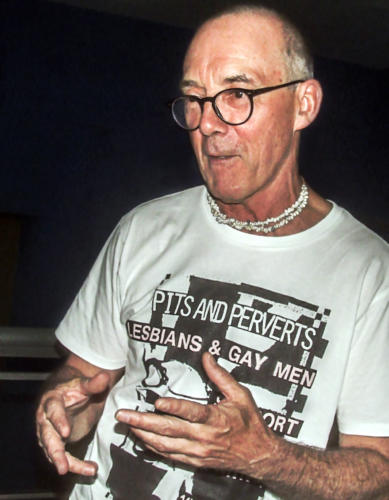
During the Gala against Homophobia and Transphobia, the English activist Mike Jackson received the Cenesex Award. Photo: Heriberto González Brito
Stephen Beresford probably found in Mike Jackson a good story to include in what would later become the screenplay for the film Pride, a historical drama about the work of a group of LGBT activists (lesbian, gay, bisexual and transgender) who raised money to help families affected by the 1984 British miners’ strike.
A long time has passed since then and now Mike has had a chance to revisit those facts. Invited by the National Center for Sex Education (Cenesex) to celebrate the eleventh edition of the Conference against Homophobia and Transphobia, the activist, is also a member of the UNITE trade union. It’s the largest in the country, bringing together millions of members from various sectors, an organization in solidarity with Cuba, shared here with the public some of his experiences with the film and the event that motivated it.
“It was during Margaret Thatcher’s second term in office (1983-1987) when she intended to close a large number of mines and put thousands of workers out of work. I was just a young man of socialist thought and a member of the LGBT community, for whom it was important not only to recognize their rights, but also those of others.
“Stephen, the screenwriter, thought the story was incredible and worth taking to the big screen. The experience was different for those of us who were part of that group. I came from the working class and it was easy for me to identify with that cause.
That is to say, during all these years millions of human beings have had the possibility of learning the real dimension of the facts…
In September 2014 it premiered in the UK and it was amazing! Many young people were attracted to it. Today, new groups have emerged in the gay community, such as those who support dockworkers and immigrants. Many are trying to do what we did at that time. We couldn’t hope for anything better!
Thanks to the film we were able to broaden our voices in the UK and in other nations, and to speak not only of struggle and commitment, but also of solidarity.
This is the first time he has visited Cuba and it has only been three weeks. However, how do you see respect for the LGBTI community (this last letter has been incorporated a few years ago and means intersex)?
I feel very safe here; there are no drug users or homeless people on the streets. Compared to London there is a great contrast. My country has lived for 40 years with strong right-wing rule, but now the new leader of the Labour Party, Jeremy Corbyn, is a great candidate on the left.
As for what you ask me, I believe that Cuba has made progress on the rights of the LGBT community, similar to my country.
If there was the possibility of a second film….
If that happens I’ll migrate to the moon!
The 11th Cuban Conference against Homophobia and Transphobia: For schools without homophobia and transphobia, began on May 4 and will run until May 18 in the context of the 30th anniversary of Cenesex, the main organizer and promoter of the event. Under the motto I include myself, this year – and for the second time – the campaign focuses on better education for the new generations.
Tillerson Out, Pompeo In

Tillerson’s gone and Pompeo’s here
Posted: Monday 14 May 2018 | 07:55:29 PM
 By Lázaro Fariñas
By Lázaro Fariñas
digital@juventudrebelde.cu
A CubaNews translation.
Edited by Walter Lippmann.
It seems that not only by going to Seville you lose your seat. For example, former Secretary of State Rex Tillerson did not go to that city, but he did go to Africa, and he lost his seat. The man, in the best Trumpist style, was called and fired. It was so humiliating that they were not even kind enough to wait for him to recover from a bad stomach acquired in that region.
Worse still, to further publicized information no one needed to know. It is known that there had long been a series of disagreements between Tillerson and the President, and on countless occasions there was a rumour that he was going to be fired at any moment. Donald Trump never forgave the Secretary of State for publicly calling him a moron at the end of a meeting with several cabinet members. Vengeful as he is, the President waited for the most inopportune moment to humiliate him.
It must be said that this gentleman was at least called on the phone, since with FBI Director James Comey, they didn’t even have that courtesy and the man learned of his dismissal on television in the middle of a meeting with his subordinates in California.
When Tillerson returned to Washington, he was no longer Secretary of State, having already been replalce in that position by that time by CIA Director Mike Pompeo.
Who’s Mike Pompeo?
When this man was appointed by Trump to the position of Director of the Central Intelligence Agency, he was a Congressional Representative from Kansas since 2011.
For some time he was in the Armed Forces where he held the rank of captain. He studied at the Military Academy in West Point, where he graduated as an engineer, and then was admitted to Harvard Law School, graduating as a lawyer, a career he practiced for a while and then went into business, until he came into politics in 2010.
Pompeo, whose paternal grandfather was born in Italy, was a member of the Congress of the Italian-American Delegation. He belongs to the ultraconservative group known as the Tea Party, a group that is on the far-right of the Republican Party.
This gentleman’s credentials as an ultraconservative are impeccable.
He supports the killings being committed by the Israelis against Palestinians in Gaza and the West Bank. He supports the method of torture by drowning [euphemistically called “waterboarding]/ He is against the closure of the torture center at the Guantánamo Naval Base. He was against the agreements that were signed with Iran. He opposes women’s right to abortion and he says that life begins at conception. He does not accept same-sex marriage. He iss a distinguished member of the National Rifle Association. He opposes the health care law that benefits the poor known as Obamacare. He does not believe in climate change, and opposes the United States signing the greenhouse gases treaty. I really don’t even know how you can be so reactionary.
At his Senate confirmation hearing, Pompeo moderated some of his positions. Of course, I knew he would not be confirmed if he held such an uncompromising position.
It is very difficult to know how this new Secretary of State will act.
It will be necessary to see if he can maintain a good diplomatic relationship with the rest of the world and if he can even stay in office having a boss as unbalanced as the one he has, a boss who likes to humiliate those under him; also, a boss who constantly contradicts himself and who constantly criticizes, lies and names his own employees.
Pompeo has a lot going against him. He declared a few days ago that he is in favor of Israel and of the crimes that that nation is committing against the Palestinians, in his favor he has the fact that he has tried by all means to avoid a war against the Democratic Republic of Korea.
He recently visited that country and met with its President. Now we’ll see if he can get Trump to heed his advice so that he doesn’t screw up with unheard of blunders when it comes time for him to sit down with the North Korean President. It is known that the White House narcissist does not like to take advice. Let’s hope he does listen to them at that next meeting, because if he doesn’t, everything that has been put forward so far to avoid war would go down the worst of roads.
Declaration of the Revolutionary Government

Cuba condemns new Israeli aggression against the Palestinian people
The Revolutionary Government of the Republic of Cuba expresses its strongest condemnation of the criminal repression by the Israeli army on the defenceless Palestinian population in the Gaza Strip
Published: Tuesday 15 May 2018 | 01:07:29 PM
A CubaNews translation. Edited by Walter Lippmann.
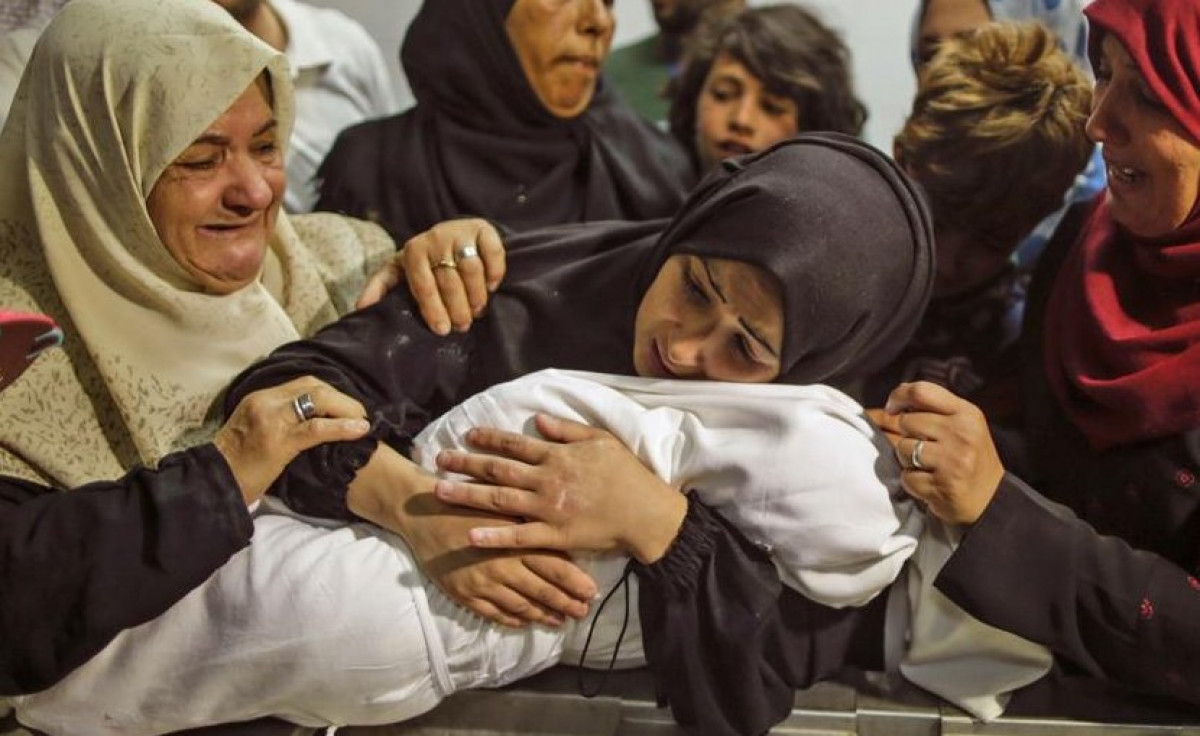
The image of this little girl killed by the attacks on the Gaza Strip goes around the world. Author: AFP Published: 15/05/2018 | 01:15 pm
Cuba condemns new Israeli aggression against the Palestinian people
The Revolutionary Government of the Republic of Cuba expresses its strongest condemnation of the criminal repression by the Israeli army of the defenceless Palestinian population in the Gaza Strip, which has killed at least 52 people and injured more than 2,400. This is yet another serious and flagrant violation of the UN Charter and international humanitarian law and a further outrage against the Palestinian people.
Cuba reiterates its rejection of the unilateral action of the Government of the United States to establish its diplomatic representation in the city of Jerusalem, in open disrespect of international law and United Nations resolutions, which further aggravates tensions in the region.
The Revolutionary Government reiterates once again its unreserved support for a comprehensive, just and lasting solution to the Israeli-Palestinian conflict, based on the creation of two states, which would allow Palestinians the right to self-determination and to an independent and sovereign state on the pre-1967 borders, with East Jerusalem as its capital.
The Dark History of the Koch Brothers
The Dark History of the Koch Brothers
 By Manuel E. Yepe
By Manuel E. Yepe
http://manuelyepe.wordpress.com/
Exclusive for the daily POR ESTO! of Merida, Mexico.
Translated and edited by Walter Lippmann.
In 2010, when Mike Pompeo arrived in Congress in 2010, he was called “the Koch Congressman” because the amount of the Koch Brothers’ industrial conglomerate’s contribution to his election campaign. Now, when he was approved by Congress as Secretary of State, several media outlets considered that the Koch Brothers finally got their own Secretary of State.
When talking to anyone form the US active in any party about some measure or projection of domestic or foreign policy in his or her country, it is inevitable that the influence that “the Koch brothers” have, or may have, on it is mentioned in one way or another.
Following his confirmation as the new Secretary of State, most of the US media have identified Mike Pompeo as “Koch’s Congressman” or “the Koch brothers’ man”. But outside the U.S. borders, brothers David and Charles Koch are not as well known.
Although they are not among the nation’s leading authorities, there are fundamental reasons for this. Together, they make up the third largest fortune in the country (only Bill Gates and Warren Buffet outnumber them). The two brothers have an annual turnover of more than $100 billion. Their industrial conglomerate is the second largest in the country, behind only the Cargill group. In 2010, it was named the 10th most polluting in the United States by the Political Economic Research Institute of Massachusetts.
Their influence on politics can be calculated by the fact that they have injected around $200 million into the most ultraconservative causes in the last decade and this hardly transcends the media.
The Big Brothers, as they are popularly known, deny their direct link to the Tea Party. They seek to remain invisible from their headquarters in Wichita, Kansas, deep in the heart of the United States. From there, the Kochs have extended the oil empire inherited from their father, Fred, by devising ways of influencing American politics without being noticed too much, through a network of small groups and foundations they have created.
Although not proclaimed a success on its own, the Americans for Prosperity Foundation, created by David Koch in 2004, was the real organizer of the Tea Party revolt. One of its phantasmagorical projects, United Patients Now, organized more than 300 “popular” protests against the Obamacare health reform and another 80 to boycott its climate protection laws.
The real forerunner of the Koch Brothers phenomenon was his father, Fred Koch, who half a century ago warned of the risks of “a communist president.” Also a critic of the New Deal of Franklin Delano Roosevelt, and denounced “the infiltration of communists” into the Democratic and Republican parties. His children inherited, in addition to their fortune, his libertarian creed.
Charles, 74, was always the most discreet. David Koch, 70, made an unfortunate foray into politics in 1980, competing with Ronald Reagan, whom he saw as a danger. David ran as a vice presidential candidate for the Libertarian Party having been nominated by Ed Clark, its presidential candidate. Among his “libertarian” electoral promises were the suppression of the FBI and the CIA, the elimination of Social Security and Minimum Wages, total deregulation and a drastic reduction in taxes. The government would be reduced to “protecting individual rights”. They got 1% of the vote.
Four years later, as Reagan took over part of his ideology, David Koch officially became a Republican and dragged his brother down the same path.
The youngest of the Kochs suffered a second enlightenment in the 1990s, when he miraculously survived a plane crash. He reinvented himself as a philanthropist for the American Ballet Theater and created the group Citizens for a Sound Economy to continue to defend his multi-million dollar privileges from the shadows.
He then created Americans for Prosperity (AFP), defined as an organization of “grassroots leaders for limited government and the free market.” He could not openly support candidates, but he invested $45 million to support conservative causes in the November 2, 2016 elections.
According to New Yorker journalist Jane Mayer, on the first anniversary of Obama’s presidency, billionaire David Koch stealthily took the lead in the “people’s revolution” by announcing that “When we created Americans for Prosperity (AFP), we had in mind a mass movement, state-by-state, with hundreds of thousands of Americans fighting for the economic freedoms that made this nation the most prosperous in history….
May 15, 2018.
Against Homophobia and Transphobia

11th Cuban Day Against Homophobia and Transphobia
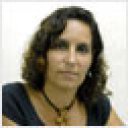 By Mileyda Menéndez Dávila
By Mileyda Menéndez Dávila
sentido@juventudrebelde.cu
A CubaNews translation.
Edited by Walter Lippmann.
Posted: Friday 11 May 2018 | 07:33:31 PM
Yesterday, as part of the 11th Annual The Cuban Day Against Homophobia and Transphobia was held at the Karl Marx Theatre in the capital, the artistic gala that every May supports respect for free and responsible sexual orientation and gender identity, as an exercise in justice and social equity. The Cuban conga against homophobia and transphobia will be held on Saturday for the same purpose.
The initiative, for the first time, will take place at 6:30 p.m., from the intersection of the capital’s streets Línea and Paseo to the José Antonio Echeverría Recreational Center. In this place will be held the Festival for Diversity at the end of the conga.
Lesbians and Assisted Reproduction in Cuba

Human Freedom Doesn’t Come Through the Gutter
When will lesbians be able to access assisted reproduction or exercise motherhood without their erotic orientation generating conflicts with the father of the child? Can they share maternity leave?
 By Mileyda Menéndez Dávila
By Mileyda Menéndez Dávila
sentido@juventudrebelde.cu
and
 Susana Gómes Bugallo
Susana Gómes Bugallodigital@juventudrebelde.cu
A CubaNews translation. Edited by Walter Lippmann.
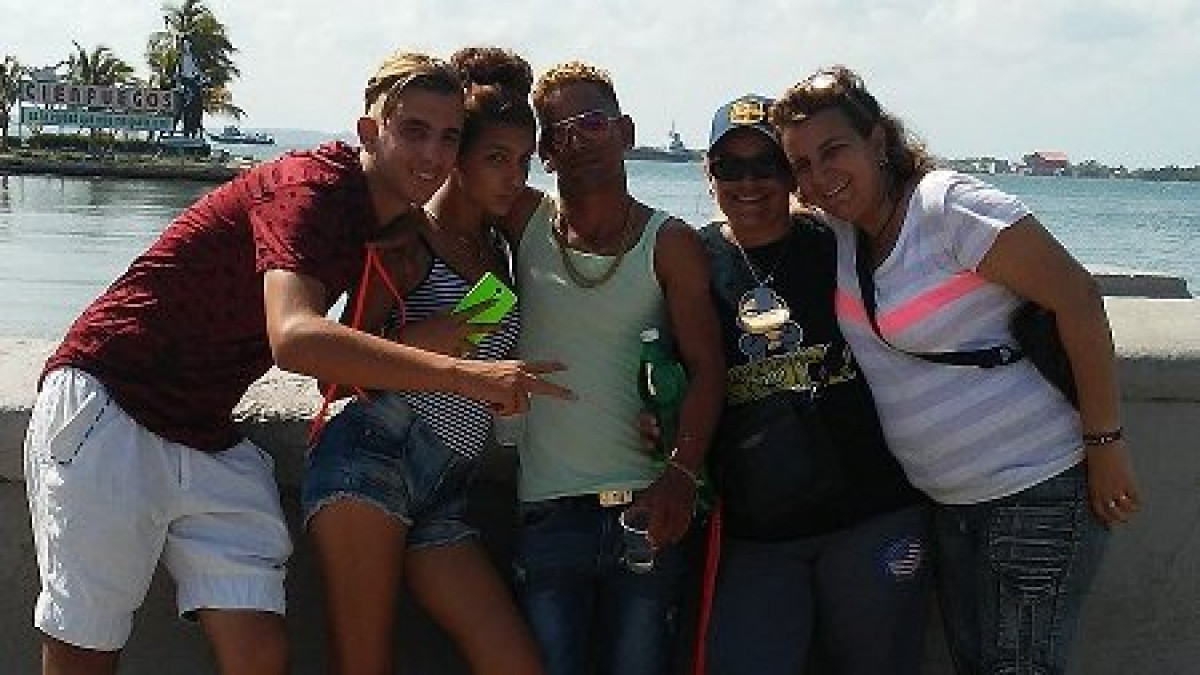
In unconventional couples there is room for children based on love, responsibility and respect Author: Juventud Rebelde Published: 05/11/2018 | 06:58 pm
The pursuit of human freedom can never be complete without freedom for women, Betty Ford.
“I have two wonderful mothers.” That’s how the poster that a girl carried around La Rampa in Havana during the Cuban Day Against Homophobia in 2013 reads. The controversy reached the social networks and since then hundreds of questions have been raised… and very few answers given.
When will lesbians be able to access assisted reproduction or exercise motherhood without their erotic orientation generating conflicts with the father of the child? Can they share maternity leave? Why is it still believed that daughters will “imitate” them, when the overwhelming majority of homosexual people come from heterosexual, machista and homophobic homes?
According to Dr. Rosa Campoalegre, the vision of the family as an institution continues to be very traditionalist, although it no longer corresponds to a diverse reality in [Cuba’s] structures and ways of functioning, and this slows down the design of more comprehensive and unbiased public policies.
This expert from the Center for Psychological and Sociological Investigations knows that many women find themselves in the dilemma of hiding their status in order not to lose family harmony or to assume it as a life project and face discredit in the social and family sphere.
There is especially little understanding by the male ex-partner. Reactions can range from denying parental rights and duties to demanding full custody and guardianship, arguing that the new “environment” is harmful.
“This is an injustice that is not compatible with our revolutionary project and its goal of eliminating inequality gaps,” insists Dr. Mariela Castro, director of the Sex Education Center (Cenesex). “Ignorance and prejudice should not be used to justify actions of discrimination,” he said.
The law or life
Most of these women do not demand legal protection from acts harmful to their dignity or the rights of their children because they are ashamed or do not know how to do so. For example, if the biological mother is absent from the country or dies, it must be clear who assumes custody of the child, and in the event of a breakdown of the relationship, how to protect property rights.
Beyond macho atavism [backwardness], there are serious concerns about legal coverage for the diverse family configurations that [today] proliferate in the country. Manuel Vázquez Seijido, founder of Cenesex’s Legal Advice Services and deputy director of the center, says there are proposals to update the laws with a less discriminatory approach, looking after the interests of minors in particular.
Responsibility and respect
One of the biggest problems lies in the effect that living with an unconventional partner can have on psychological development. In this regard, Dr. Mariela Castro emphasizes: “Being a mother or father is not a gift of nature, you have to learn to be one in every society. Same-sex couples have shown that they can do well and seek help to take on that responsibility, just as heterosexual couples seek guidance because they are afraid of failing.
This is how the psychologist Roxanne Castellanos saw it in her consultation at the Alfonso Bernal del Riego Center for Attention to Psychological Attention: “These unions can be as functional as a typical nuclear family. The emotional consequences that impact self-esteem occur when the little person becomes aware of how different his or her life is and worries about being the target of criticism.
“The antidote,” insists Mariela Castro, “is to cultivate communication within the family and to demand that in other socializing spaces, such as the schools, the extended family or the neighborhood, they help the child to grow without humiliation or violence, and without depriving the child of her or his rights and opportunities.
It is absurd to believe that the child will end up adopting his or her mothers’ erotic model. Behaviors are learned by imitation, but not so much guidance as everyday behavior. An adequate example of love and mutual respect helps to build a healthy psychosexual identity, centeredd on the responsible enjoyment of the body and the exercise of sexual rights, rather than on the orientation of desire.
If the child is male, male role models can be provided outside the home, just as when the father figure is missing due to widowhood, abandonment or divorce. In addition, sexual orientation is a process that does not finish maturing until late adolescence or youth and by then there are other patterns when it comes to shaping the erotic taste: friendships, teachers, artists, sportsmen…
If the home is functioning well, there is no need for external psychological support, because it will be a space of contention and development where they will always find love, trust and material support, agree the interviewees.
Against Prejudice and For Sexual Diversity
#Me Incluyo I:
Standing Against Prejudices and For Sexual Diversity
By Aniel Santiesteban García
May 11, 2018
Translated and edited by Walter Lippmann for CubaNews
In its eleventh edition, the campaign promoted by the National Center for Sex Education (Cenesex), backing a non-judgmental look at sexual diversity, is committed to schools free of homophobia and transphobia. The discussion on it took place on the Mesa Redonda (Round Table) TV program, as well as on radio, which was broadcast on Thursday (May 10)..
The Conference will run until the 20th of this month, with emphasis on the educational campaign “Me incluyo” (I Include Myself), which renews its thematic focus every two years.
Dr. C. Mariela Castro Espín, Director of the National Center for Sex Education, M.Sc. Manuel Vázquez Seijido, Deputy Director of the Center, Ms. Delia Rosa Suárez Socarrás, Specialist of the Research and Education Department of Cenesex and M.Sc. Yanira Gómez Delgado, Head of the Independent Department of School Health of the Ministry of Education, were the panelists invited to this space.
It was Dr. C. Mariela Castro, who explained the reason for choosing schools, once again, to develop this campaign: “For some time now, (we are now in our eleventh edition), and from the knowledge we had acquired in terms of legal guidance, we identified how, in the most vulnerable areas, the workplace and at school, where education against homophobia had to begin.”
“From this point on, we decided that we would work on it every two years, so that every message and every way of transmitting it would really achieve its objective; that the campaign would really work,” she added.
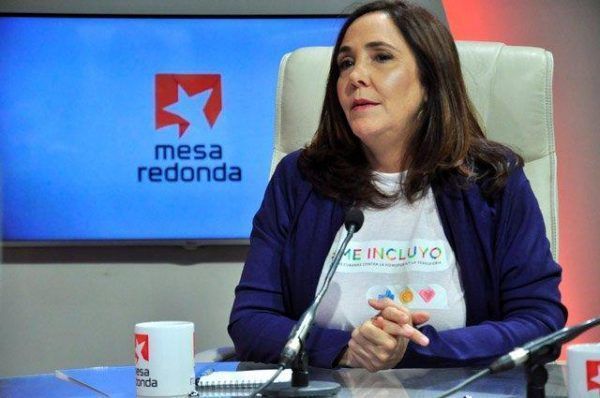
“Cuba is a safe country, the school is safe, the family has confidence in it, with these campaigns we want to raise awareness, address worries, and provide education and guidance to the population.
Castro Espín added that the school was chosen, based on studies carried out by important centers and national institutions; “it was an essential space, a place that we could not leave out of the campaign”.
“It is worth noting,” says Mariela, “that the guidelines received by UNESCO, with its call to states, to investigate and address bullying issues within their policies, in the context of violence in school”.
“Cuba is a safe country, the school is safe, the family has confidence in it, with these campaigns we want to raise awareness, raise concern, provide education and guidance to the population with scientifically proven data in studies that we conducted at the Center and other institutions on the subject,” said Castro Espín.
The M.Sc. Yanira Gómez Delgado, Head of the Independent Department of School Health of the Ministry of Education, said that since the beginning of this campaign, the Ministry has been committed to a pedagogical strategy of safer sex promotion.
“We have implemented actions through the curriculum, which have been necessary to introduce into the different curricula, subjects, and teachings,” added the Mined board of directors.
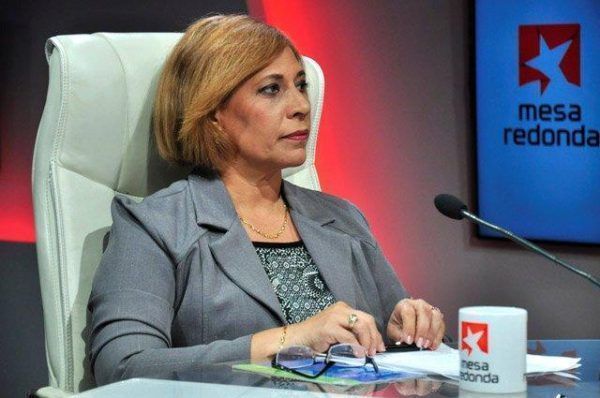
With regard to the Campaign dedicated to schools, the specialist pointed out that the National Education System does not encourage one or another practice regarding sexual orientation.
She added that Mined also has 1997 as a reference year and the national plan of action for the follow-up to the Beijing Conference, which puts into effect a set of actions as evidence of the country’s policy to ponder the role of women.
With regard to the Campaign dedicated to schools, the specialist pointed out that the National Education System does not encourage one or another practice regarding sexual orientation, but rather fights to ensure that each person’s decisions in this regard are respected.
Teachers, according to Gómez Delgado, have been given preparatory seminars for their active participation in this campaign.
“Precisely because of the importance of Cuba’s schools, Cenesex has decided to develop in this eleventh edition of all the teachings in the country’s educational centers,” confirmed Ms. Delia Rosa Suárez Socarrás, a specialist with the Cenesex Research and Education Department.
“We have set out to conduct research to help measure indicators in our country with respect to advocacy against homophobic and transphobic practices, to learn what really happens within the educational centers that we want to preserve,” said Suárez Socarrás.
To this he added: “Research in the social, legal and medical sciences denounces the behaviors that are now commonplace, which are now a reality and remain unresolved in most cases, and persist in the country’s educational centers”.
On behalf of Cenesex, Suárez Socarrás thanked the Ministry of Education for its support and, above all, for the leadership of the professional training schools of the capital’s education sector, where a plan of activities has yet to be developed that responds to the Center’s campaign #MeIncluyo to promote the end of homophobia and transphobia in the schools.
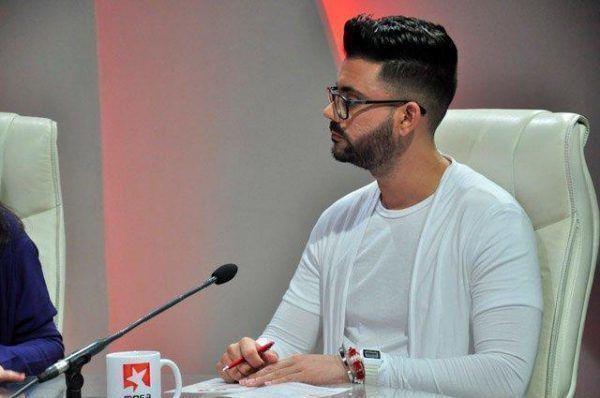
“Social networks are added to the days’ activities with the goal of communication that contributes to strengthening it, so we developed exchanges with Internet users,” said Vazquez Seijido.
The M.Sc. Manuel Vázquez Seijido, Deputy Director of the National Sex Education Centre, explained how the day of 17 May, and the days leading up to it, was planned to be devoted to the fight against homophobia around the world.
Vázquez Seijido explained that the event includes photographic exhibitions, film exhibitions, which this time, are developed in conjunction with the Ministry of Social Development of Uruguay, master conferences, theoretical panels and the usual Conga every year, this year, on May 13, from La Piragua to the Pabellón Cuba, the founding site of the Campaign.
“Social networks are added to the activities of this day with a aim of communication that contributes to strengthen it, we developed exchanges with Internet users,” said Vazquez Seijido.
“We must think that what we are doing from Cenesex in terms of contributions of fundamental rights, and implies a shared responsibility that is located in all areas of society,” he concluded.
Subscribe to Blog via Email
| M | T | W | T | F | S | S |
|---|---|---|---|---|---|---|
| 1 | ||||||
| 2 | 3 | 4 | 5 | 6 | 7 | 8 |
| 9 | 10 | 11 | 12 | 13 | 14 | 15 |
| 16 | 17 | 18 | 19 | 20 | 21 | 22 |
| 23 | 24 | 25 | 26 | 27 | 28 | |



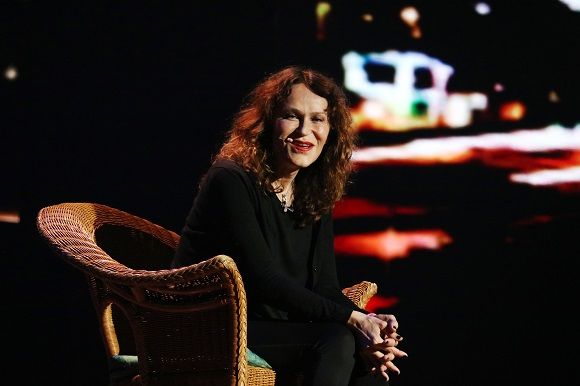


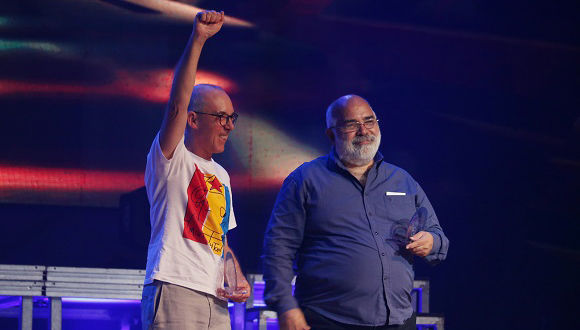
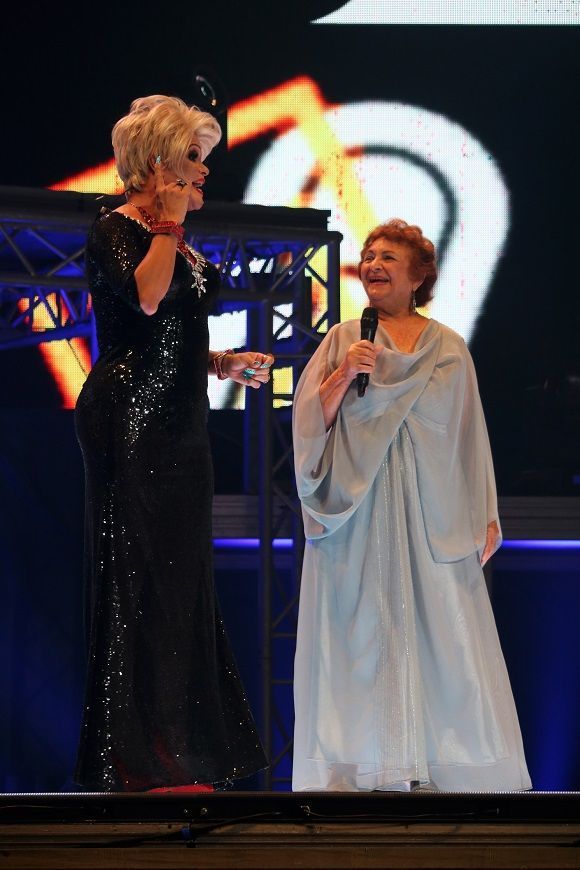


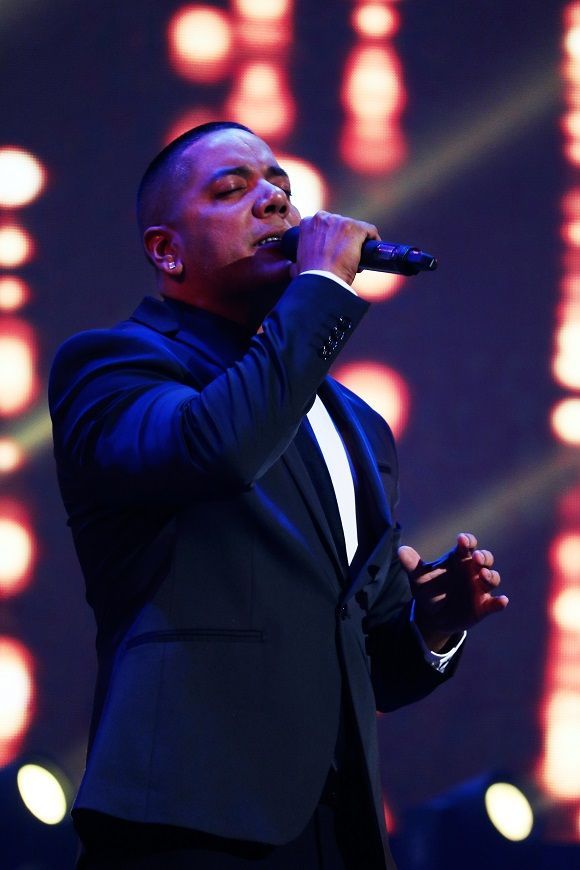
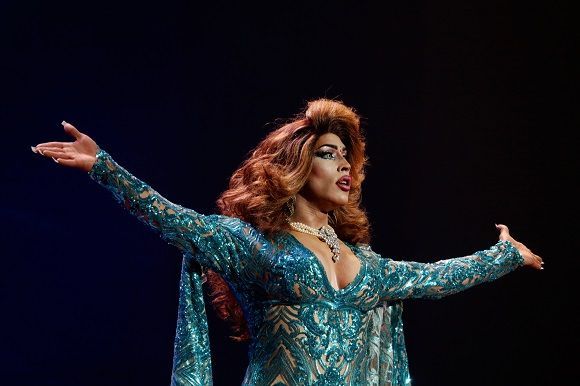


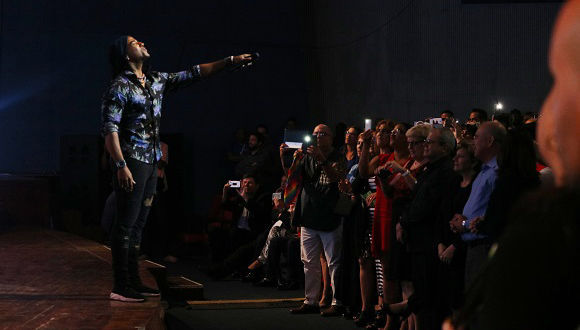


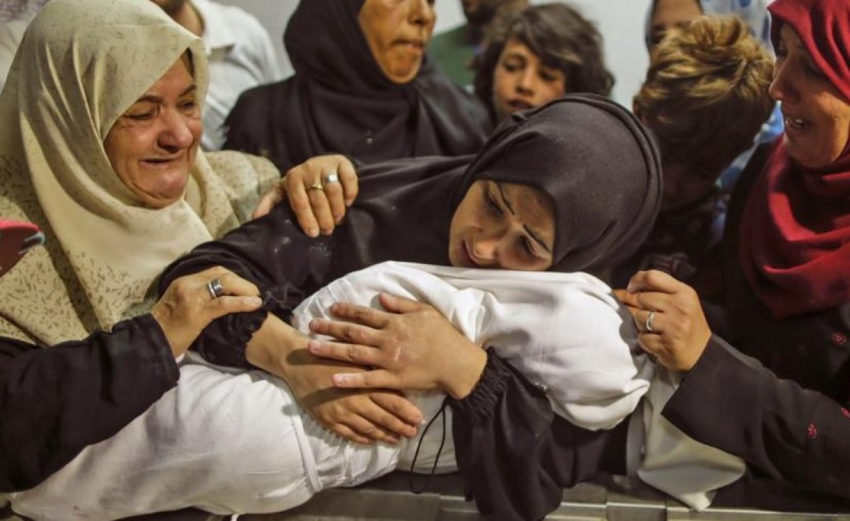

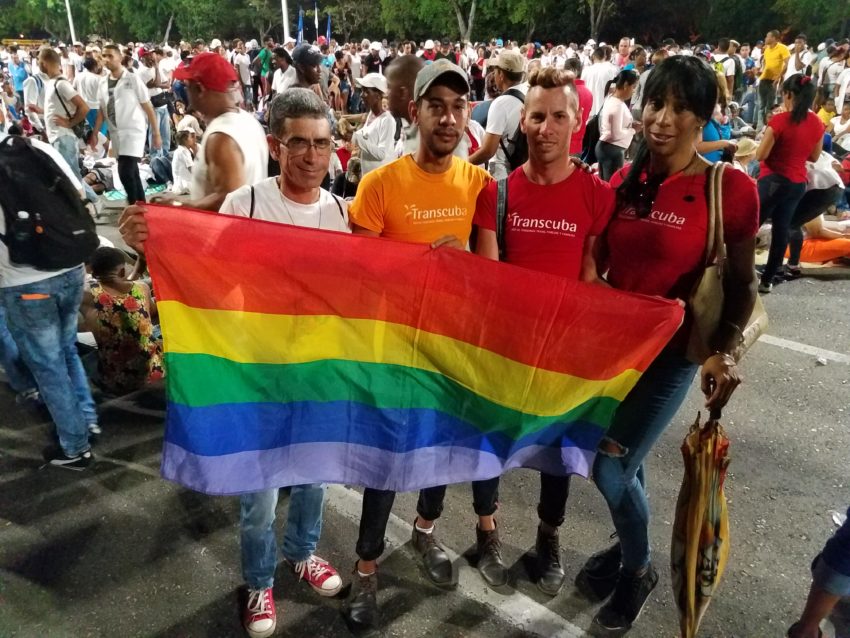
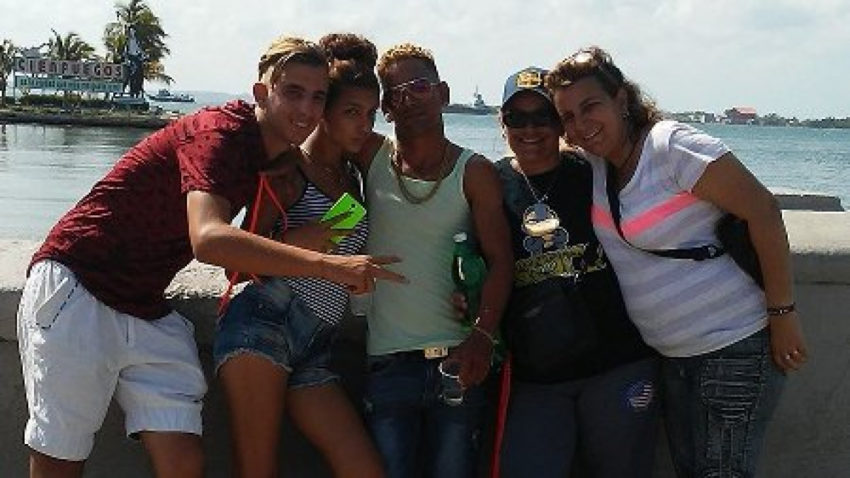


You must be logged in to post a comment.